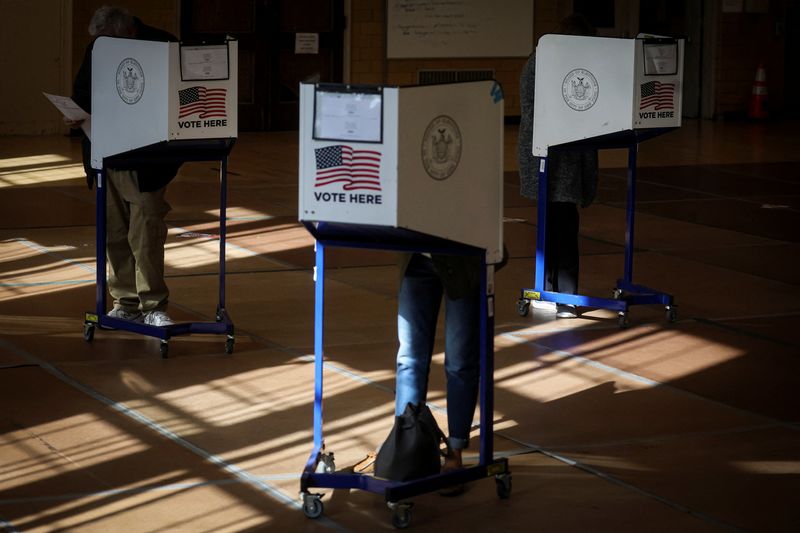(Reuters) - Nine main Republican candidates are jostling to be their party's presidential nominee in the 2024 election, while President Joe Biden faces two long-shot challenges for the Democratic nomination.
Here is a timeline of events between now and Election Day on Nov. 5, 2024.
2023
Oct. 15: Federal Election Commission quarterly filing deadline for candidates to declare the money they have raised and spent.
Nov. 8: The third Republican debate will be held in Miami. Criteria to participate will be tougher than the second debate and include rules related to opinion polling and fundraising.
2024
Jan. 15: Republicans in Iowa hold their nominating contests, known as caucuses, the first of this election cycle. Caucuses are private meetings organized at the county, precinct or district level where participants divide into groups according to the candidate they support, determining how many delegates each candidate receives.
Jan. 23: Tentative date of the first Republican presidential primary election, to be held in New Hampshire. Primaries are run by state and local governments where participants vote for their preferred candidate in a secret ballot.
Jan. 31: Federal Election Commission 2023 year-end filing deadline for candidates to declare the money they have raised and spent.
Feb. 3: First Democratic presidential primary, to be held in South Carolina.
Feb. 6: Democratic primary in Nevada.
Feb. 6: Tentative date for New Hampshire Democrats to vote in their primary.
Feb. 8: Nevada caucuses for Republicans.
Feb. 24: South Carolina Republican primary.
Feb. 27: Democratic primary in Michigan.
March 5: Known as Super Tuesday, this is the biggest single day of primaries that often helps to whittle down the field of candidates. Both parties hold them in Alabama, Arkansas, California, Colorado, Maine, Massachusetts, Minnesota, North Carolina, Oklahoma, Tennessee, Texas, Vermont and Virginia.
Democrats in Utah will also vote in their primary while Republicans hold their caucuses in the state.
March 12: Primaries held in the states of Georgia, Mississippi and Washington. Republicans in Hawaii hold caucuses.
March 19: Primaries held in Arizona, Florida, Illinois, Kansas and Ohio.
June 4: The final states to hold their presidential primaries are scheduled to do so on this date. Some states have not yet set their primary or caucus dates.
July 15-18: Republican National Convention in Milwaukee, where the party formally chooses its candidate.
Aug. 19-22: Democratic National Convention in Chicago, where the party formally chooses its candidate.

Nov. 5: Election Day
Nov. ?: Result known. It could take days for the result to be known, especially if it is close and mail-in ballots, where rules on when they are counted and their validity vary depending on the state, come into play.